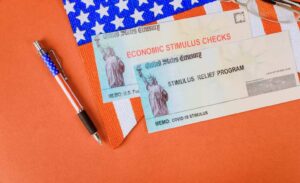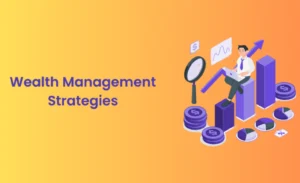Managing your money wisely isn’t about strict budgeting or depriving yourself. It’s about making smart choices that help you save more, spend less, and build a secure financial future. Whether you’re just starting out or looking to improve your habits, these personal finance tips will guide you toward greater control over your money.
Let’s break down practical steps for personal finance management. You’ll learn how to understand your current financial situation, set goals, budget effectively, save smartly, and prepare for the future.
The Overview of Personal Financial Management
The first step to better money management is knowing exactly where you stand financially. This means tracking your income, expenses, debts, and assets carefully.
Start by listing all sources of income and all monthly expenses, including fixed costs like rent and variable ones like groceries. Don’t forget debts such as credit cards or loans, and assets like savings accounts or investments.
This clear picture gives you a foundation to build a personalized plan. It shows where your money is going and highlights areas where you can improve.
Setting Clear Financial Goals
Having clear financial goals makes saving and spending decisions easier. Your goals can be short-term, like saving for a vacation, or long-term, such as buying a home or retiring comfortably.
Set specific, achievable targets with deadlines. For example, aim to save $5,000 in one year or pay off a credit card in six months. Clear goals keep you motivated and focused.
Remember, your goals should reflect your values and priorities. Align your spending habits with what matters most to you.
Creating and Sticking to a Budget
A budget is your spending plan that matches your income with expenses and savings. There are various budgeting methods, but the key is to find one that works for you.
The 50/30/20 rule is simple: allocate 50% of your income to needs, 30% to wants, and 20% to savings or debt repayment. Alternatively, zero-based budgeting assigns every dollar a purpose, ensuring you know where your money goes.
Track your spending regularly and adjust as needed. Realistic budgeting avoids frustration and helps you stay on course without feeling restricted.
Managing Debt Wisely
Not all debt is bad, but it’s important to know the difference. Good debt, like a mortgage or student loan, can help build your future. Bad debt, such as high-interest credit cards, can quickly become a burden.
Focus on paying off high-interest debt first to save money on interest payments. Consider strategies like the debt snowball method, which targets smaller debts first to build momentum, or the avalanche method, which prioritizes debts with the highest interest rates.
Avoid adding new debt unnecessarily, and always make timely payments to protect your credit score. Wise debt management keeps your finances healthy and stress low.
Smart Spending Strategies
Spending less doesn’t mean giving up what you enjoy. It’s about distinguishing needs from wants and making thoughtful choices.
Plan major purchases in advance and watch for sales or discounts, but avoid impulse buys that don’t fit your budget. Consider waiting 24 hours before making non-essential purchases it often reduces impulse spending.
Focus on quality over quantity, especially for items you use daily. Sometimes spending a little more upfront means saving in the long run.
By spending mindfully, you make room in your budget for saving and investing in your goals.
Saving Money Tips That Work

Saving money effectively requires a combination of smart habits and intentional planning. It’s not just about cutting expenses but also about making thoughtful choices that maximize the value of every dollar. Whether you’re saving for a big goal or simply trying to build a financial cushion, adopting proven strategies can help you stay on track and make meaningful progress.
Here are some practical money-saving tips that have stood the test of time:
- Create a Budget: Track your income and expenses to understand where your money goes and identify areas to cut back.
- Automate Savings: Set up automatic transfers to your savings account to ensure consistent saving without having to think about it.
- Cut Unnecessary Subscriptions: Review your recurring payments and cancel services you no longer use or need.
- Shop with a List: Avoid impulse buying by sticking to a shopping list and comparing prices before purchases.
- Cook at Home: Preparing meals at home is often cheaper and healthier than eating out or ordering takeout.
- Use Cashback and Discounts: Take advantage of cashback offers, coupons, and seasonal sales to reduce spending.
- Reduce Energy Usage: Lower your utility bills by turning off unused electronics, using energy-efficient appliances, and adjusting thermostat settings.
- Pay Off High-Interest Debt: Focus on clearing debts with high interest to save money on unnecessary interest payments.
Implementing even a few of these tips can make a significant difference in your financial health over time.
Building an Emergency Fund
An emergency fund is your financial safety net for unexpected expenses like medical bills, car repairs, or sudden job loss. Without one, emergencies can quickly derail your financial plans.
Aim to save at least three to six months’ worth of essential living expenses. Start small by setting aside a fixed amount each month in a separate, easily accessible account.
Treat your emergency fund as untouchable unless it’s a true emergency. Having this buffer reduces stress and helps you avoid relying on credit when the unexpected happens.
Personal Financial Planning Tips for the Future
Planning ahead ensures your finances support your long-term goals. Start by thinking about retirement savings, even small contributions made early can grow significantly over time.
Consider insurance options to protect yourself and your family from unforeseen events. Health, life, and disability insurance offer financial security when you need it most.
Regularly review your financial situation and adjust your plans as life changes. This keeps your goals aligned with your current needs and market conditions.
Taking proactive steps now helps you build a stable and prosperous future.
Take Control of Your Finances Today
Smart personal finance isn’t about complicated formulas or strict restrictions. It’s about making clear, intentional choices that help you save more and spend less.
By understanding your financial starting point, setting realistic goals, budgeting wisely, managing debt, and planning for the future, you’re building a strong foundation.
Start applying these tips today and take confident steps toward financial freedom and peace of mind.








